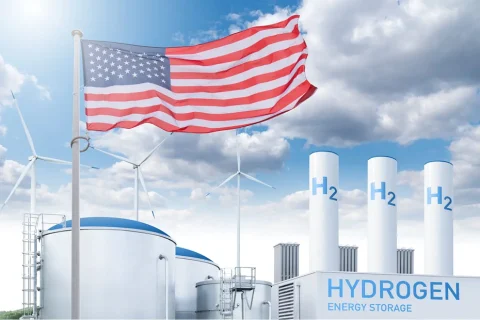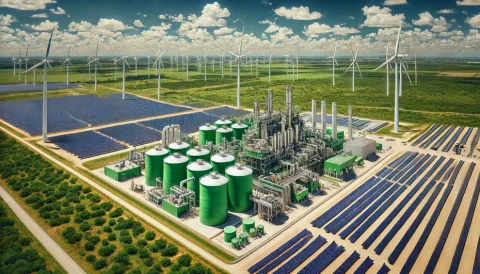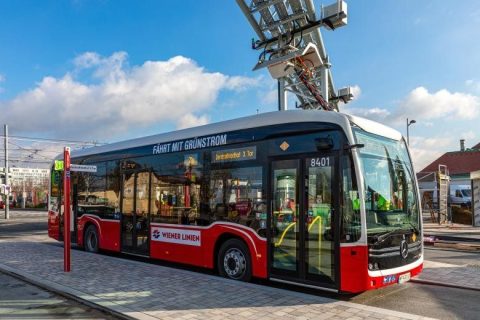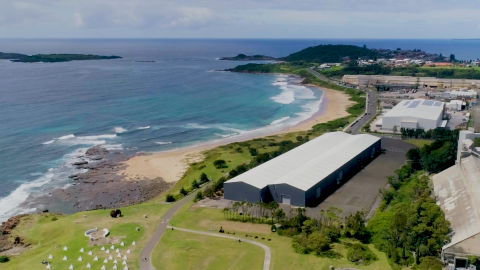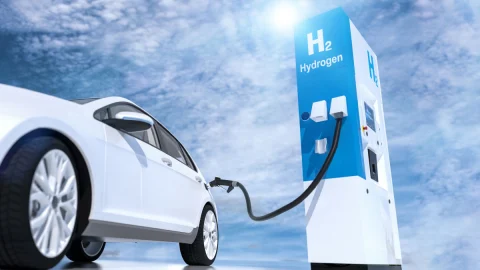The HKW Leipzig Süd power station represents a major step in Germany’s energy transition. This facility introduces groundbreaking hydrogen-ready technology for clean energy production. It sets new benchmarks for environmental performance in power generation.
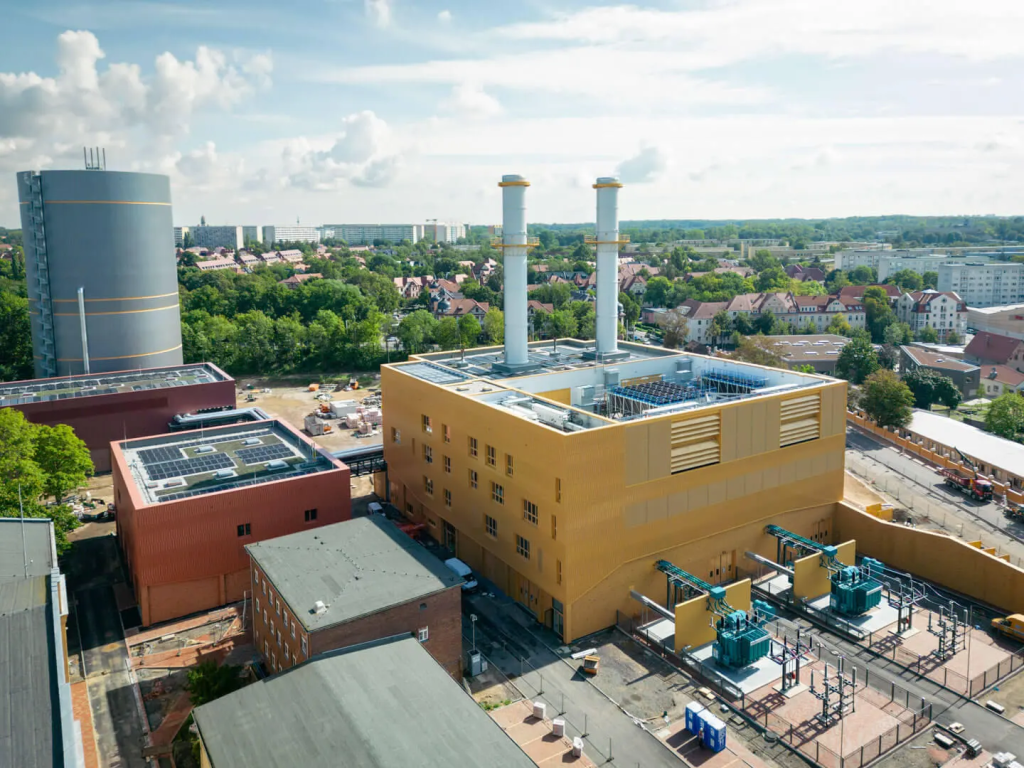
Key Highlights
- 94% energy utilization efficiency transforms into 125 MW electrical output
- Advanced systems deliver 163 MW thermal power for district heating
- Hydrogen-ready technology enables future 100% hydrogen operation
- Current operations achieve the lowest NOx emissions in German CHP plants
- Rapid response systems ensure grid stability and flexible power generation
From Coal Legacy to Clean Energy Future
Leipzig’s industrial growth historically depended on coal-fired power plants. These facilities provided 60% of the city’s thermal energy requirements. This era ended in October 2023 with Stadtwerke Leipzig’s innovative solution.
The new combined heat and power plant features two Siemens Energy SGT-800 gas turbines. Each turbine generates 62 MW capacity with current capabilities for 30% hydrogen usage. Future upgrades will allow these turbines to run entirely on hydrogen.
This technological advancement places Leipzig at the forefront of Germany’s energy revolution. The facility demonstrates the viability of clean energy transitions in industrial regions.
Technical Innovation and Efficiency

The plant incorporates a sophisticated thermal storage system for optimized operations. This system balances heat and power production based on current demand patterns. Battery storage systems provide essential blackstart capability for the facility.
The plant reaches full generation capacity in just 15 minutes. This rapid response helps maintain grid stability during peak demand. The facility connects to Germany’s planned 9,000-kilometer hydrogen network.
Environmental Impact and Future Prospects
The facility currently runs on natural gas while preparing for hydrogen integration. Industry experts predict price parity between natural gas and green hydrogen by 2040. This timeline includes consideration of CO2 pricing in cost calculations.
Low-carbon hydrogen solutions may achieve competitive pricing even earlier. These projections align with European energy policies and environmental goals. The transition timeline supports gradual infrastructure development.
Strategic Importance for Energy Security
- Local production capabilities reduce dependence on external energy sources
- Advanced technology enables quick responses to grid demand fluctuations
- Integrated systems support renewable energy expansion across the region
- Modern infrastructure prepares Leipzig for the emerging hydrogen economy
- Flexible operations ensure reliable power supply during peak demand periods
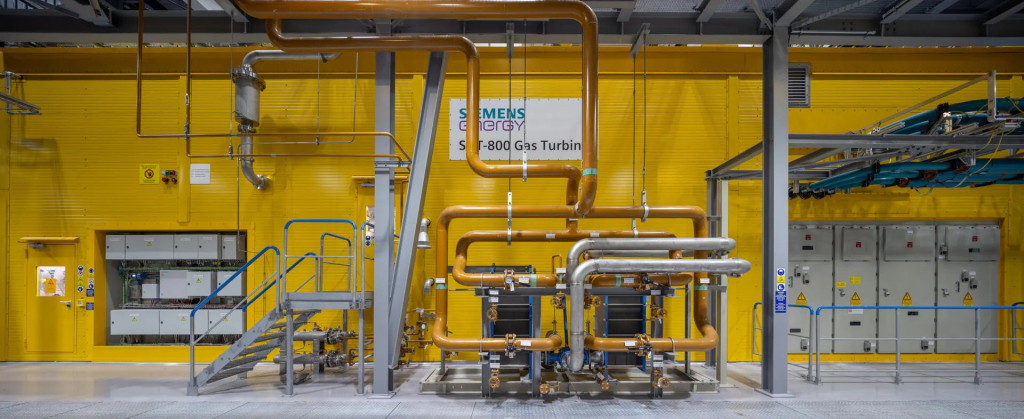
Infrastructure Development
The Leipzig Süd plant connects directly to Germany’s developing hydrogen network. Plans include construction of a local electrolyzer facility near the plant. Europe’s largest solar thermal plant operates in close proximity.
This comprehensive energy approach supports Leipzig’s carbon neutrality goals. The city aims to achieve complete carbon neutrality by 2038. Multiple clean energy sources ensure reliable power generation.
International Collaboration and Market Development
The hydrogen power sector requires coordination across multiple European nations. Regulatory frameworks need harmonization for effective cross-border cooperation. Public-private partnerships must support new infrastructure development.
International standards ensure consistent hydrogen production quality. Global trade relationships facilitate technology advancement in the sector. Cooperation agreements strengthen supply chain reliability.
Technical Specifications
- Modern gas turbines feature hydrogen-ready design components
- Thermal storage systems optimize daily operations
- Smart grid integration ensures reliable power distribution
- Battery systems provide backup power capabilities
- Control systems enable rapid response to demand changes
Future Implementation Timeline
Stadtwerke Leipzig has developed a clear transition strategy for hydrogen adoption. Initial hydrogen integration begins in 2025 with gradual capacity increases. Technical teams will upgrade systems as hydrogen infrastructure expands.
The facility will undergo burner conversion for full hydrogen capability. This modification aligns with hydrogen network development schedules. Engineers monitor system performance throughout the transition process.
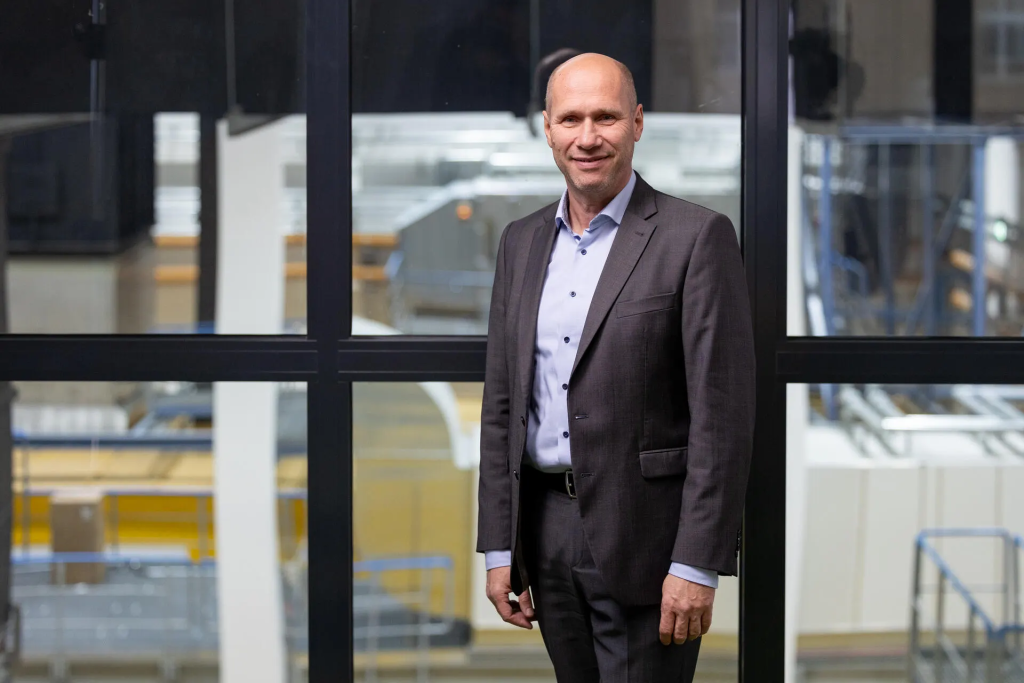
Each stage of development follows detailed environmental impact assessments. The project team maintains close coordination with regulatory authorities. Local stakeholders receive regular updates about transition progress.
The Leipzig Süd power plant shows how future energy systems can operate effectively. It combines high efficiency with strong environmental performance standards. This facility proves that hydrogen power generation can support sustainable energy goals.
The project demonstrates leadership in clean energy technology adoption. It provides valuable insights for similar transitions across Europe. Success here supports broader hydrogen infrastructure development plans.
Did You Know? JCB Launches First Hydrogen-Powered Backhoe Loader


